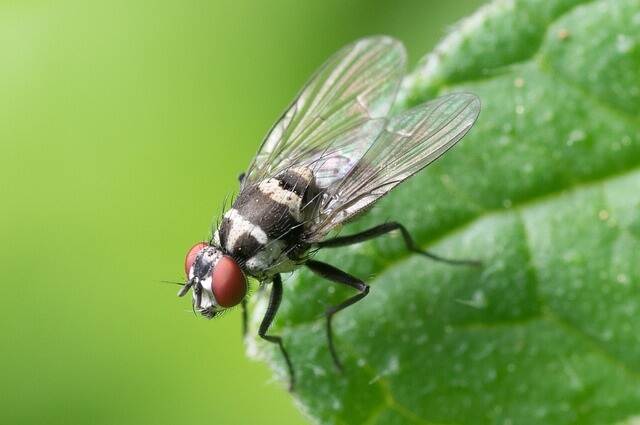Premiere in Romania: insect farming initiative
A small Romanian entrepreneur, Marius Grama, would like to revolutionize the Romanian animal husbandry sector. He started an insect farm, more precisely a larvae farm in the village of Belin, Covasna county. According to Grama, the unusual business has a huge profit potential, provided that the animal husbandry and the animal feeding sectors start accepting unconventional sources of protein.

The beginning
Marius Grama admits that the insect farm is something new in Romania, but it is not something out of the ordinary. It should be noted that the production of this farm is not meant for human consumption, but for animals.
For the entrepreneur, the unusual business manages to bring a modest income at present, so he plans to expand production and to provide protein feed for livestock farms.
The idea of an insect farm sprouted in Marius Grama's mind four years ago, when he experimented in his own house, in an aquarium, with eggs imported from Great Britain, and later, in a second room, the activity expanded with reproduction. The step towards a real business was made with the help of a bank loan which allowed him to buy a production area auctioned as a result of a bankruptcy. “We took a risk, we agreed with the bank and the bailiff on some good terms and then, little by little, we invested in equipment, in technology", Marius Grama explained.
Insect farm with an initial investment of 200,000 euros
On the production side, Grama did research by himself, and achieved good yields in relation to the used area. "The reproduction part is the most difficult, because certain conditions of brightness, humidity, air currents, density must be met. […] We reached the performance of harvesting one kilogram of eggs per day in the space we have, which means that we can produce from one kilogram of eggs, 4 tons of live larvae per day", says the unconventional farmer who, in the first phase, invested an amount of over 200,000 euros, now planning to expand. "Our target is to produce several tons of larvae per day and to get one euro per kilogram of live larvae - which means a good result, and to address the farmers", he explains.
The insect species bred on the farm in Belin is called the Black Soldier Fly (Hermetia illucens), which does not live in Romania (it does not find the temperature and humidity conditions it needs). The larvae of this fly contain up to 40% protein, and 20-30% of their content is fat. They also have a lot of calcium, which is why they are also known as "calci-worms".
The production process takes 20 days
From egg stage to harvest, the process takes a maximum of 20 days. The eggs are collected in special devices, then weighed, dosed and moved to a special room where they hatch at a higher temperature and humidity. The larvae are then dried using a microwave dryer, a relatively new technology, which also sterilizes them. The obtained product is packed in bags or bottles.
At this moment, the insect farm is an important supplier of fishing baits and pet food. But the business has great potential in animal husbandry, where insects can be used as a feed with a lot of protein. "Our products best reach pets. This means iguanas, other reptiles or exotic fish, or another small animal that is part of the family, and then the owner, is willing to pay more for quality food which also makes the pets happy!", declares the producer.
From pets to farm animals?
The target of the insect farm is however to become a feed supplier for livestock farms, as an alternative to soybean meal. "The advantages of using larvae in animal feed are many. First of all, the welfare of the animals - they are basically happy. The tests we did showed that in addition to the weight gain and happiness of the animals, the deaths decreased", says Marius Grama.
The farmer's plans to expand the market are however confronted with the traditionalism that characterizes the agricultural sector. "It is not the animal that needs to be convinced in our case, but the master or farm owner” he says.
To take his business to the next level, the insect breeder from Belin needs a substantial investment that would amount to at least 1.6 million, maybe even 2 million euros. The farm could produce 20 tons of feed per day, i.e. 3-4 tons of live larvae that would have a retail price of one euro per kilogram. "A very important detail is the fact that we do not generate waste, we only use water, heat and bran in our case now, but everything that we use is then used to produce a very good vermicompost that we managed authorize but we are struggling with the sales side - to give value to what we produce," says the farmer.
What Marius Grama likes the most about his business is that he can produce a lot with very little. “The space for food, the water, everything is at a minimum, and the result is maximum in a very short time. I'm not saying that this is the food of the future for people, we do not address people! We still appreciate the chicken, pig and other animals that we grew up with, but at the same time we are open to new things and hope we can be an example for others and prove that it works to produce a lot, in a small space and with a minimum effort".